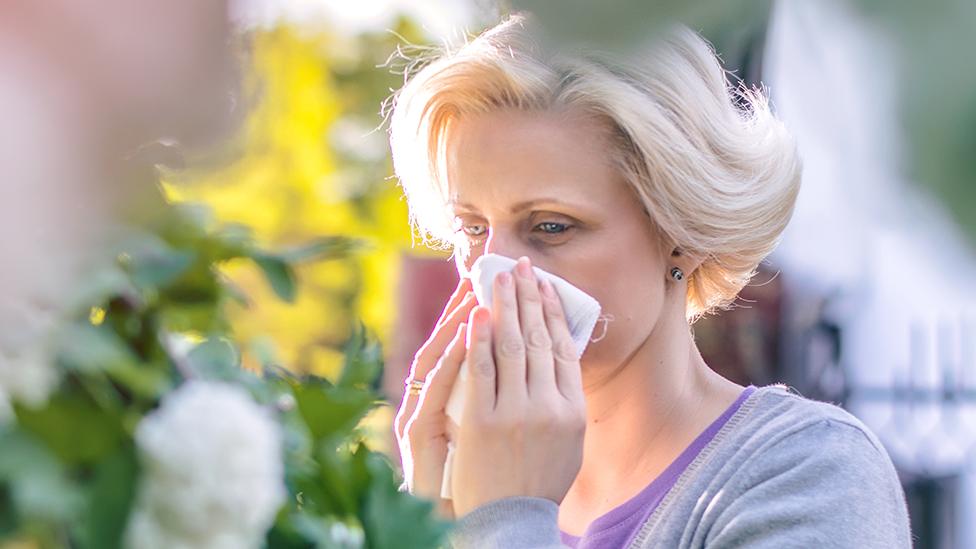Berkshire hospitals urge non-urgent patients to avoid A&E
- Published

The hospital in Reading said it had seen increased numbers due to the hot weather and high pollen
Hospital bosses have urged people to avoid A&E for non-urgent issues after seeing an influx of people with hot weather, asthma and hay fever symptoms.
The Royal Berkshire in Reading and Wexham Park in Slough said very high numbers had attended since Sunday.
The hospitals have urged people with non-emergency issues to use alternative services such as urgent care centres.
The advice comes as junior doctors are set to strike for 72 hours from 07:00 BST on Wednesday until Saturday.
Allow X content?
This article contains content provided by X. We ask for your permission before anything is loaded, as they may be using cookies and other technologies. You may want to read X’s cookie policy, external and privacy policy, external before accepting. To view this content choose ‘accept and continue’.
Urging people to choose their healthcare services "wisely" this week, the Royal Berkshire said it had seen "extremely high levels" of attendances due to the recent hot weather and high pollen levels.
Dom Hardy, chief operating officer at the hospital, said: "If you need urgent but not life-saving help we'd be really grateful if people could use NHS 111 or use the urgent care centre in Reading.
"Or see your pharmacist for over-the-counter remedies like antihistamines if you suffer from hay fever."
The hospital in Reading said on Monday at 15:00 it had nearly 400 patients in the emergency department.

Tips for managing hay fever symptoms
Put petroleum jelly around the nostrils to trap pollen
Wear wraparound sunglasses to stop pollen getting into your eyes
Showering and changing clothes after being outside to wash off pollen
Vacuum regularly and dust with a damp cloth
Avoid cutting the grass or keeping fresh flowers inside
Source: NHS

Frimley Health NHS Foundation Trust said the "exceptionally high numbers" of people at A&E was creating much longer waiting times for anyone who was not in urgent need of care, particularly at Wexham Park Hospital.
People sought advice for hay fever symptoms once every three seconds on Sunday, NHS England said.
The Met Office said the pollen count was expected to be "very high" in most of England and Wales on Tuesday.
Hay fever is usually at its worst between March and September when the pollen count is at its highest and the weather can be warm, windy and humid.

Follow BBC South on Facebook, external, Twitter, external, or Instagram, external. Send your story ideas to south.newsonline@bbc.co.uk, external.
- Published13 June 2023
